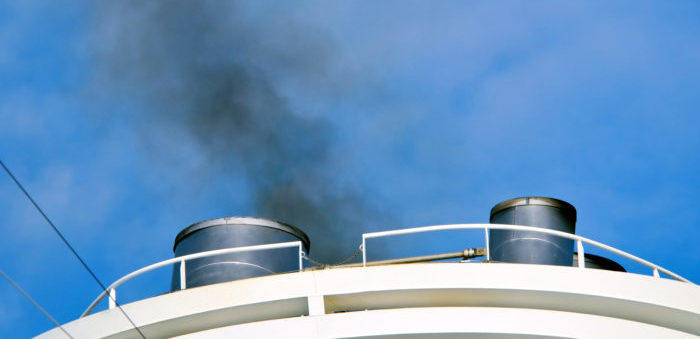The European Parliament Environment Committee expressed concerns with insufficient progress in the IMO to reduce emissions from the maritime sector internationally.
On Thursday, the Environment, Public Health and Food Safety Committee debated the reduction of emissions from shipping with Mrs. Adina-Ioana Vălean, European Commissioner for Transport.
Ahead the 75th session of the IMO’s Marine Environment Protection Committee (IMO MEPC 75), which will take place online 16 – 20 November, Commissioner Vălean underlined that the maritime sector is a global sector, so long-term solutions will also have to be found globally.
While she expressed satisfaction on IMO’s Intersessional Working Group on GHG emission reduction from shipping, she lowered expectations for the upcoming MEPC 75, partly ‘because it will be difficult to achieve progress in online meetings’. She actually said she did not expect major progress in the next 6-12 months by the main global players postponing important decisions to MEPC 76 in 2021.
I am pleased with the outcome of last week’s talks, and I will ensure we do not rest until the IMO approves concrete technical and operational short-term measures to deliver on its Initial GHG emission reduction strategy.
While we have a global standard for ship energy efficiency that can be applied worldwide and although the EU’s MRV regulation puts the EU in the unique position of being able to monitor and enforce global energy efficiency standards, she noted, there is still a checklist of topics that need addressing, such as:
- further incentives for ships to improve their performance;
- a robust and effective enforcement scheme;
- meaningful and comprehensive verification schemes; and
- mechanisms to ensure a level playing-field and to avoid early movers being penalized.
These remarks come after several MEPs repeated their disappointment by the insufficient progress in the IMO to reduce emissions from shipping. They have previously also requested the Commission to examine the overall environmental integrity of the measures decided upon by the IMO, including the targets under the Paris Agreement.
Several MEPs welcomed the Commissioners confirmation that it will propose to include shipping in the EU ETS, as requested by Parliament in September, while others requested clarification on how the Commission intends to improve energy efficiency for the maritime sector.
In September, the Parliament welcomed the Commission’s proposal to revise the EU system for monitoring, reporting and verifying CO2 emissions from maritime transport (EU MRV Regulation) and bring it in line with new obligations under IMO to monitor emissions from 2019 and report in 2020.
They however also called for more ambition and voted to include ships of 5000 gt and above in the EU ETS and to introduce binding requirements for shipping companies to reduce their annual average CO2 emissions per transport work, for all their ships, by at least 40% by 2030.
Maritime transport remains the only sector with no specific EU commitments to reduce greenhouse gas emissions. Global shipping activity emits significant amounts of GHG emissions, estimated to be around 2-3% of total global GHG emissions. This is more than the emissions of any EU member state. In 2017 in the EU, 13% of total EU transport GHG emissions came from maritime.

































































